In sports, every player has their position and knows their responsibilities. Often, the sales process works in a similar way. It takes teamwork to get the ball across the line and win the sale.
Each team member has a role to play and links one step in the sales funnel to another. Like everything in the business world, there is no one-size-fits-all prescription. Some sales roles are more suited to your organization than others.
In this guide, we’ll cover the sales team roles that every business should have.
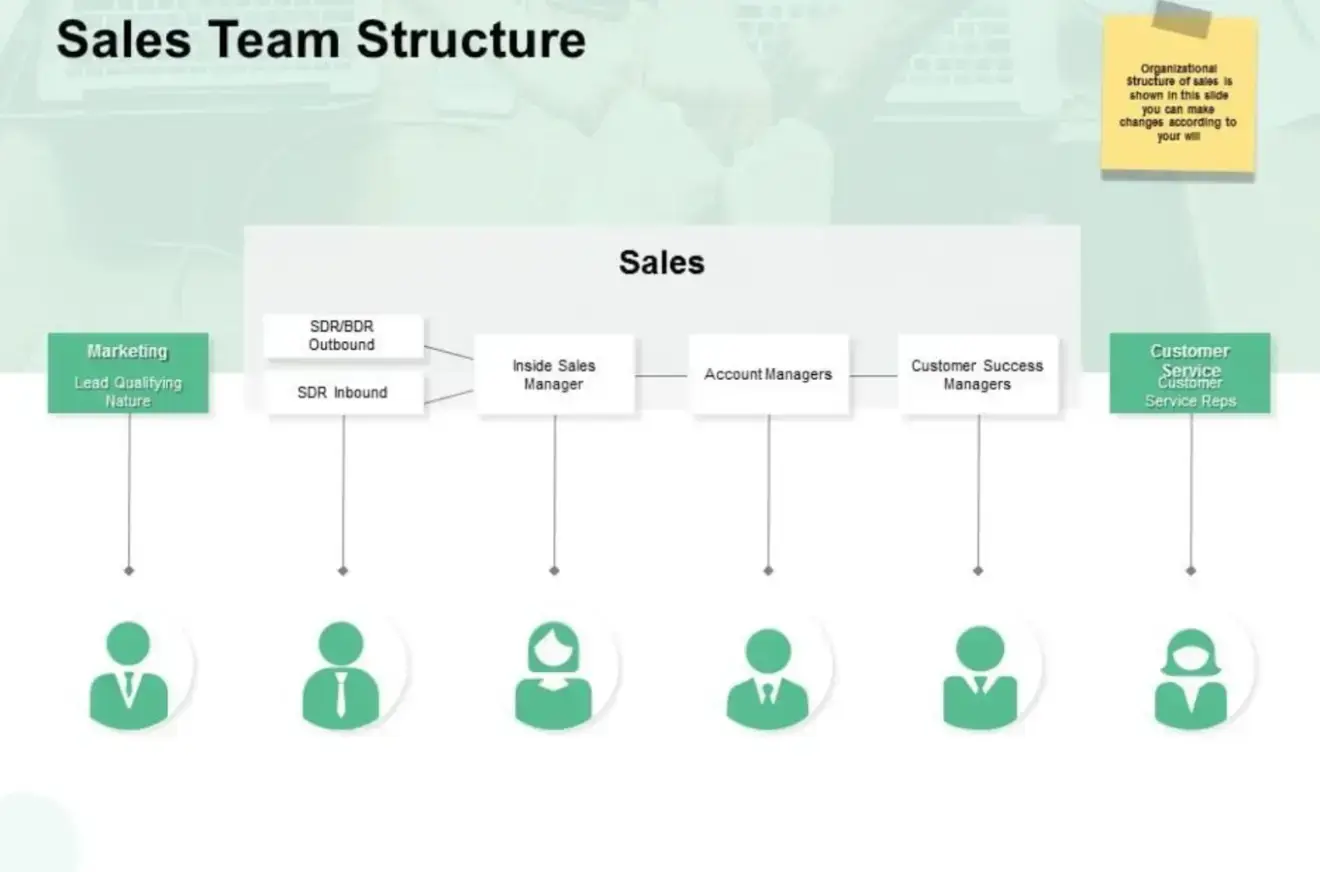
Source: Slide Geeks
What Are the Benefits of Having Specific Sales Team Roles?
It just makes sense to have separate sales roles and responsibilities. However, why are we doing this?
Here are some of the benefits of using specific sales team roles:
- Better organization - everyone knows how they fit into the bigger picture.
- Increased collaboration - team members help each other organically to reach the same goal, with 81% of sales representatives saying that selling as a team helps them to close deals.
- Improved customer experience - customers interact with the right sales rep at the stage of the buying process they are in.
- Higher conversion rates - each team member adds their expertise to the relevant touchpoint.
14 Sales Team Roles
Now, let’s take a look at the sales professional roles that are vital to your organization.
1. Sales Associate
Sales associates assist customers during the purchase process. It may be as simple as confirming details and processing a transaction.
However, they must also be equipped to answer customer questions and point them in the right direction.
2. Inside Sales Representative
Inside sales reps are your first point of contact with customers interested in making a purchase. They are typically a jack-of-all-trades, with an emphasis on acquiring new customers.
For expert strategies to build and manage your sales team effectively, explore the resources available at RevPilots.
Inside sales representatives can take inbound calls or pitch to qualified leads. They can support closers by qualifying leads or help associates in answering questions during payment.
Sales representatives need to be enthusiastic, motivated, and at times thick-skinned. Use a high-volume hiring solution to ensure your front-line sales team stays at optimal levels.
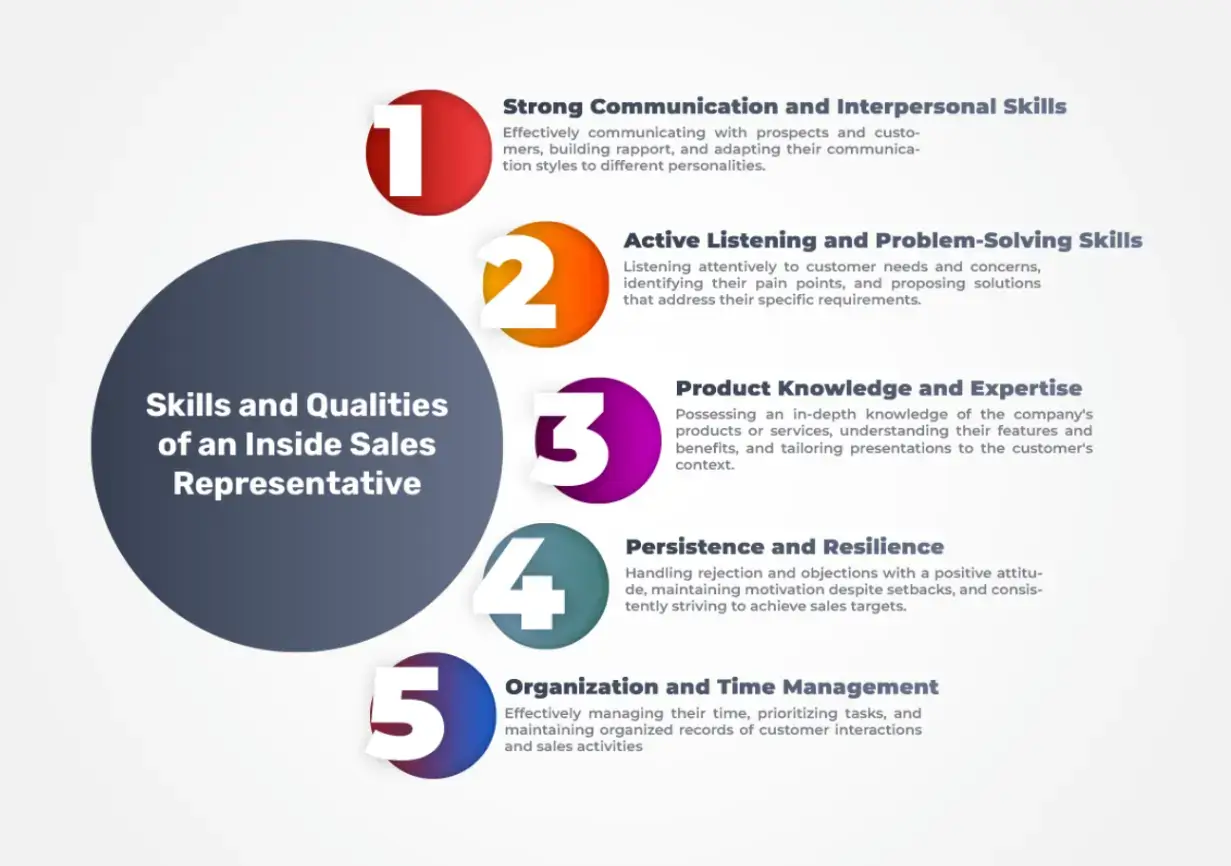
Source: Careerflow
3. Sales Development Representative (SDR)
Sales Development Representatives engage with prospects in the front to middle of the sales funnel.
They identify and qualify leads during the early stages of the buyer’s journey. In that way, they are “developing” and nurturing potential sales.
Because of their importance in modern sales organizations, SDR jobs are often in high demand, especially at fast-growing B2B companies focused on pipeline generation.
The daily activities of sales development reps include:
- Prospecting from company databases
- Cold calling
- Delivering email drip campaigns
- Engaging prospects on social media
- Following up with leads
4. Business Development Representative (BDR)
Business development reps relate to your SDRs. They too focus on identifying and qualifying leads. However, they do this by strengthening client relationships and seeking beneficial partnerships.

Free to use image sourced from Unsplash
BDRs must conduct extensive market research, including competitor analysis. They leverage their knowledge and relationships to create opportunities for the sales team.
When it comes to B2B sales tips, hiring business development representatives is near the top. Development reps also work in business strategy, creating new sales tactics and objectives.
5. Field Sales Representative
Not all sales activities are conducted remotely or from the office. Sometimes you just need people out there. Field sales reps work face-to-face with potential customers.
They follow up with hard-to-contact leads. Field reps might even give on-site product demonstrations.
Your field sales team can check in on prospects and existing accounts. They are either creating buyer awareness to generate new leads or encouraging repeat buys from loyal customers.
6. Account Executive
Sales account execs are sometimes seen as the rock stars of the team.
They are the closers, the negotiators, and those who seemingly have an answer for every objection. While valuable in their own right, they specialize in one thing: finalizing the deal.
It's up to early and mid-funnel team members to provide closers with quality leads. They should be receiving prospects who have already had their wheels greased to buy.
Closers meet with prospects who have the intent to buy. They take them through the final steps of the sales pipeline, answering questions and handling objections.
7. Technical Sales Engineer or Sales Specialist
Sales specialists and sales engineers understand the technical details of your products. These sales team roles work in the middle to late funnel stages.
They work with clients who have complex technical requirements.
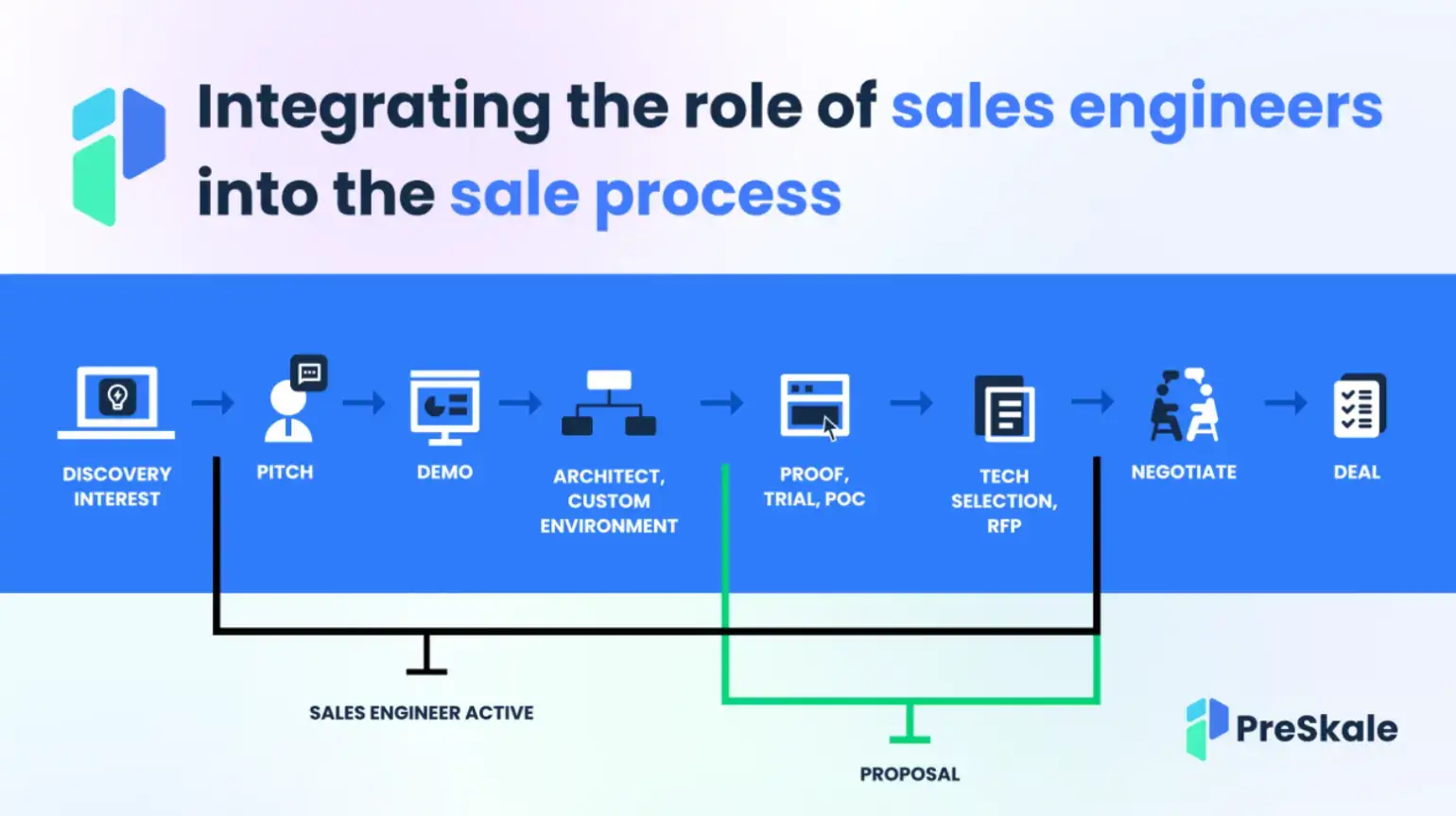
Source: LinkedIn
A sales engineer builds trust with a prospect in your company.
They demonstrate your product's expertise and how it solves its pain points. This is because they use the products themselves and can put themselves in the customer’s seat.
Sometimes you don’t have the necessary expertise in-house. Consider using recruitment process outsourcing (RPO) to find technical experts for your sales team.
You can also explore working with an employer of record to hire international talent quickly and compliantly.
Many RPO models use applicant tracking and automated candidate screening to streamline hiring tasks.
8. Sales Manager
Every team needs a leader. The sales manager oversees the planning and execution of the entire pipeline. They serve as a guiding light, tracking performance metrics such as conversion rates.
Managers use data monitoring tools to gather information on every sales interaction. They work with upper management, or the C-suite, to develop a sales strategy aligned with the organization's goals.
Sales managers are responsible for:
- Leading, mentoring, and developing the team.
- Keeping all stakeholders informed on performance metrics.
- Aligning sales strategies with business objectives.
- Allocating resources such as sales tools and training materials.
- Delegating roles and responsibilities for projects and initiatives.
9. Sales Operations Analyst
The manager has a lot on their plate.
The sales operations analyst alleviates some of the burden by focusing on all of that big data. They are responsible for connecting the tools in your business stack and collecting the relevant sales data.
Sales operations analysts are also your experts at interpreting data. Analysts report to the sales manager and can also make recommendations to sales trainers and enablement managers.
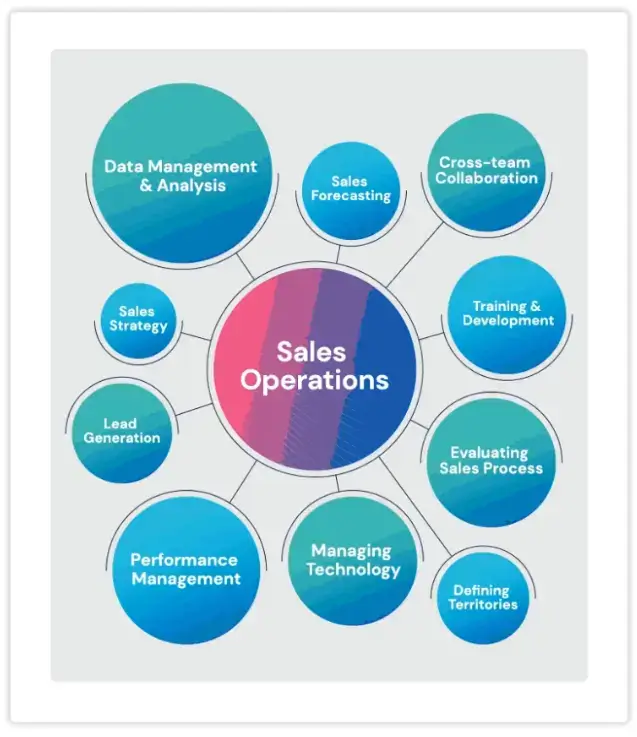
Source: Mailshake
10. Sales Enablement Manager
While the main idea of selling remains the same, modern sales require a comprehensive set of sales and automation tools.
It is the job of the sales enablement manager to oversee the sales software that empowers your team, such as a Vonage international calling plan for business.
Some of the sales tools you likely have include solutions for:
- Customer relationship management (CRM)
- Enterprise resource planning (ERP)
- Unified business communications
- Omnichannel customer service
- Prospecting
- Appointing setting
- Email marketing
- Sales and marketing automation
- Commission structuring.
- Lead scoring
A sales enablement manager ensures your team has the right tools for the job and uses them optimally.
11. Sales Trainer
Managers and senior team members can mentor and coach your sales professionals. However, it falls to the sales trainer to implement the onboarding, training, and executive development coaching of sales team roles.
Sales trainers don’t need to be experts at prospecting or closing.
They are experts at teaching team members how to perform. They create training with seminars, workshops, live scenarios, and a learning management system (LMS).
Trainers arm every team member with the right skills and knowledge for the job.
12. Marketing Manager
Okay, so what does the marketing manager have to do with sales team roles?
It’s the marketing department that is responsible for keeping your sales pipeline well-fed. Marketing also helps develop customer loyalty and retention initiatives.

Free to use image sourced from Unsplash
Marketing liaises with sales leaders and management to optimize campaigns. Messaging and content better align with the ideal customer profiles sales is targeting.
Marketing also helps to increase customer lifetime value (CLV) with support and loyalty programs.
13. Customer Success Manager
The sales process doesn’t end once payment is made.
It is up to your client success manager and team to ensure a smooth transition for new and repeat buyers. They enhance consumer trust and strengthen customer loyalty.
Success managers focus on the following areas:
- Increasing customer retention
- Upselling and cross-selling
- Onboarding for new customers
- Handling customer reviews and account follow-up
- Using data to gather insight on existing customers.
14. Appointment Scheduler
Last but not least, it would be unwise to overlook the importance of your sales appointment schedulers.
These vital team members serve a mandatory function. With inside and outside sales, closers, and everything in between, scheduling conflicts are sure to arise!
Your appointment setters send reminders and manage double bookings. They use appointment-setting software to optimize schedules. Schedulers ensure prospects keep moving through the pipeline.
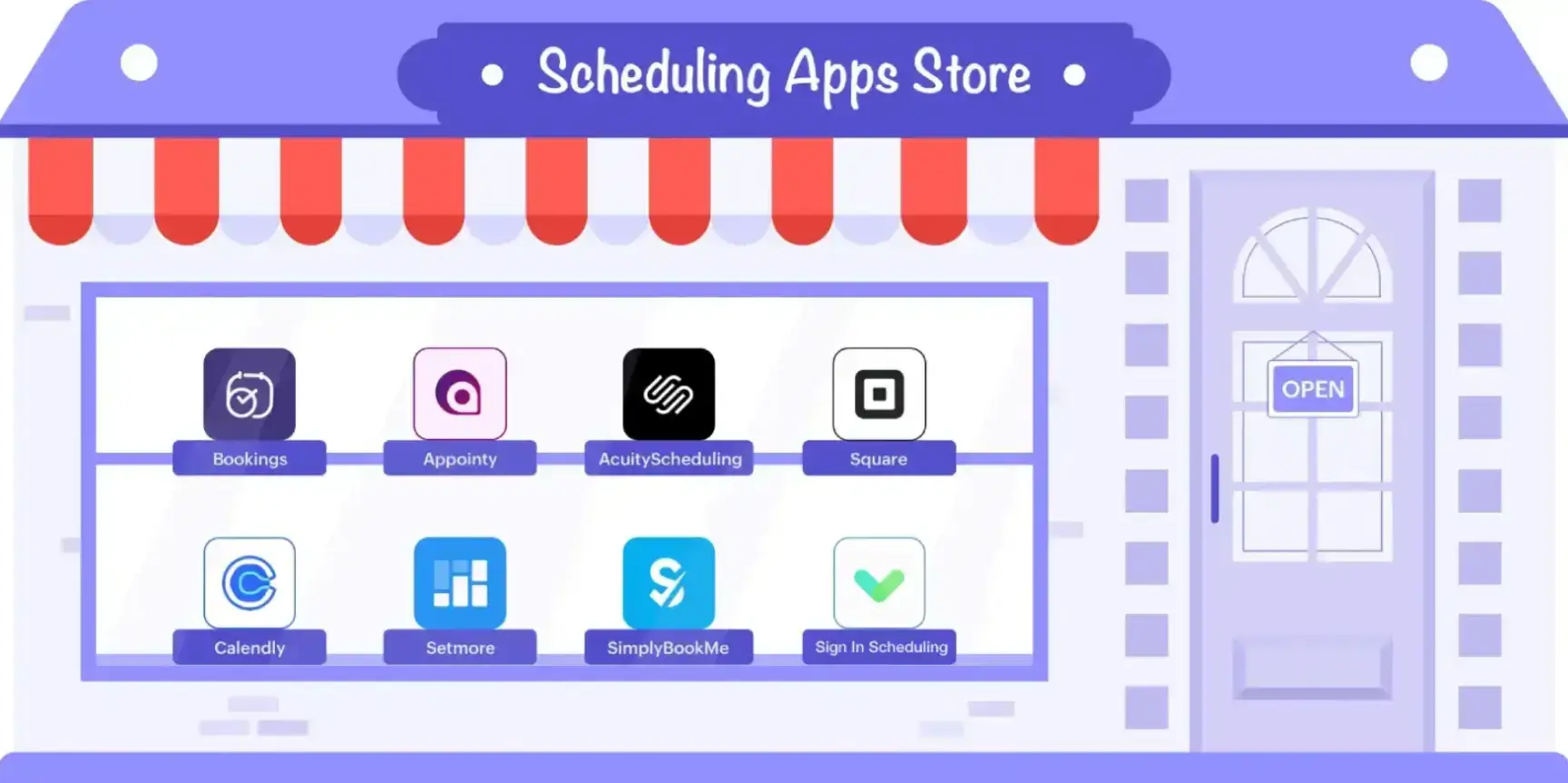
Source: Zoho
Grow Your Business with the Right Sales Team Roles
Your products are adapting to consumer expectations and market trends. Likewise, your sales funnel evolves to deliver the experience buyers want. Fill your organization with the crucial sales team roles in this article, and watch everything fall into place.

Author Bio
Kelly is an editor and content specialist with 10 years of experience making words work.

